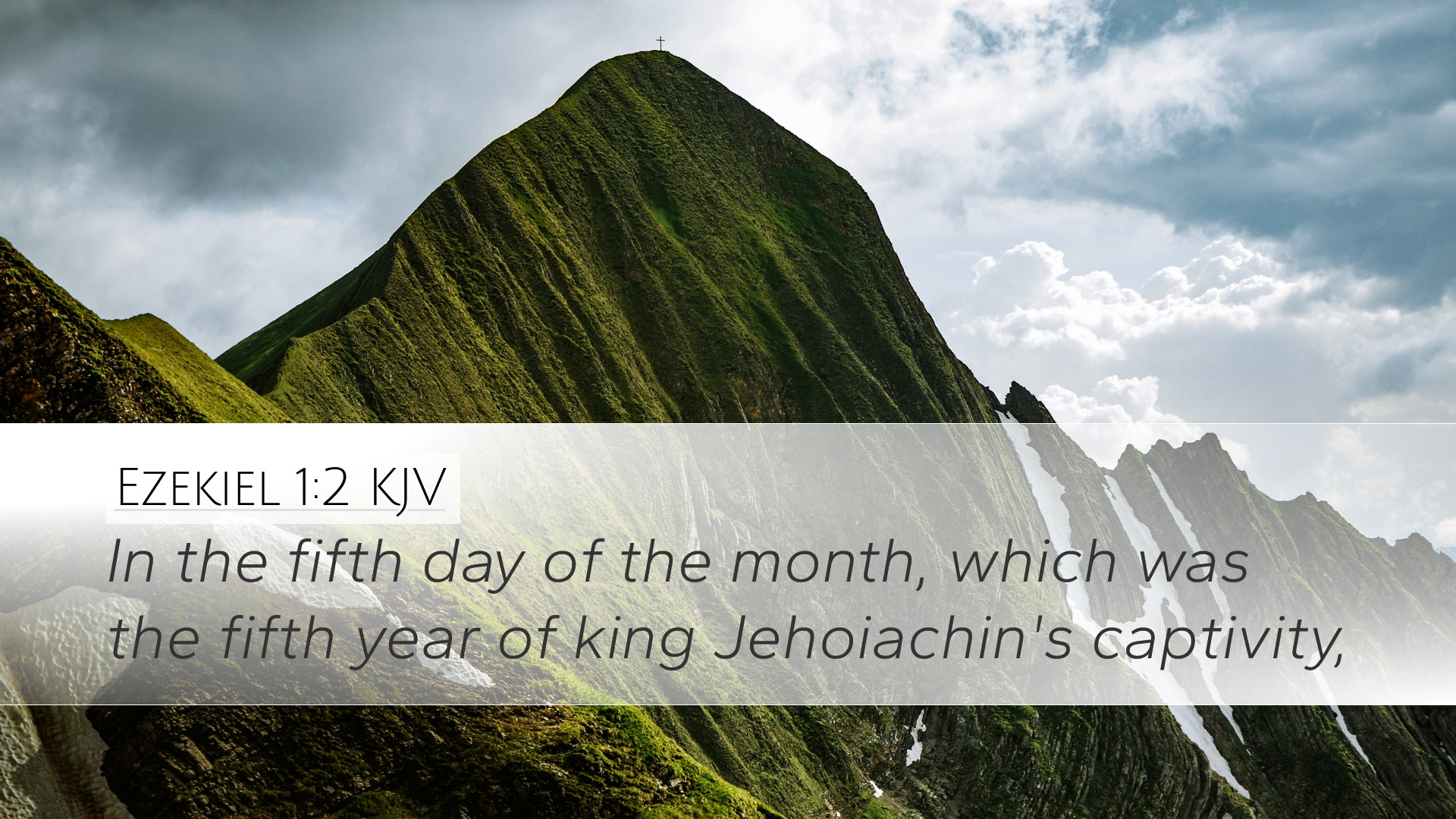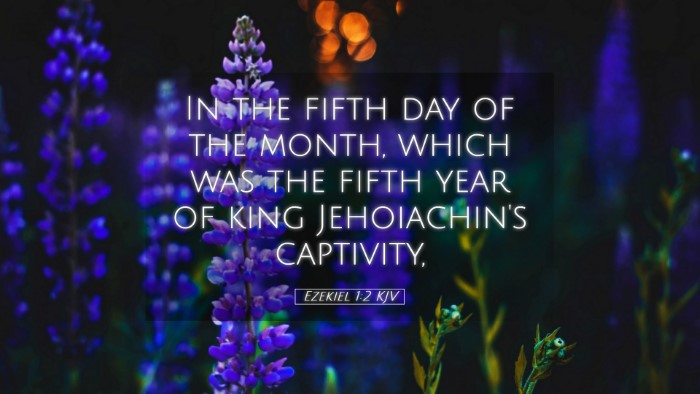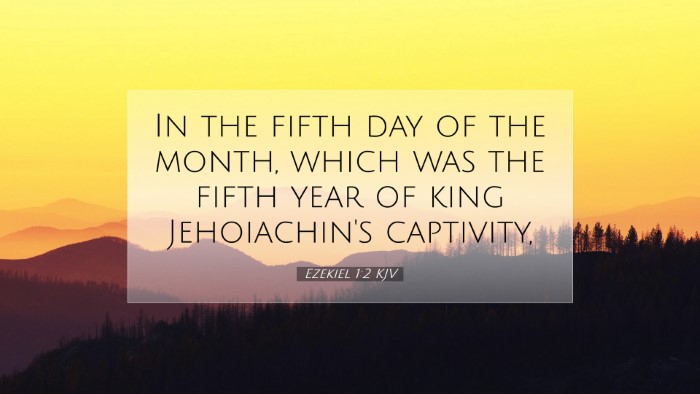Ezekiel 1:2 - Commentary
Introduction: Ezekiel is one of the major prophets of the Old Testament, and his writings introduce profound visions and prophetic messages. Ezekiel 1:2 marks the beginning of the prophet's extraordinary experiences. The verse reads:
"In the fifth day of the month, which was the fifth year of king Jehoiachin's captivity."
Contextual Background
Historical Setting: Ezekiel prophesied during the Babylonian exile. This was a time of significant turmoil for the Jewish people. King Jehoiachin had been taken captive, and the Jewish nation faced the complex challenges of captivity and loss of national identity.
Time Frame: The mention of the "fifth day of the month" and "the fifth year of king Jehoiachin's captivity" positions this event in the broader timeline of Jewish history. This specific dating emphasizes the prophetic nature of Ezekiel's ministry during a critical point in Israel's history.
Insights from Public Domain Commentaries
Matthew Henry's Commentary
Henry emphasizes the significance of dates in prophetic writings as markers of God's timing in history. He notes that Ezekiel begins by grounding his vision in real historical circumstances, highlighting the burden of the time. This established timeframe serves to remind readers that God’s revelation often occurs amidst human suffering and uncertainty.
Albert Barnes' Notes
Barnes observes that the date emphasizes the reality of Ezekiel's situation as a captive along with his people. He suggests that the mention of Jehoiachin signals a moment of despair for the Israelites, and it serves as a backdrop against which God's glory would later shine through Ezekiel’s visions. This bleak context sets the stage for the dramatic revelations that follow.
Adam Clarke's Commentary
Clarke adds that the "fifth year" illustrates not just time but also a significant trial that the Jewish people were enduring. He further notes that such specific details provide authenticity to Ezekiel's prophecies, rooting them in historical reality. Clarke also points to the implications of this captivity, indicating that it signifies not just physical removal but a spiritual estrangement from God.
Theological Reflections
Theological Implications: The verse invites theological reflections on the nature of God's presence in times of suffering. Ezekiel’s experience shows that God communicates His will even in the darkest of circumstances, serving as a reminder that God is sovereign over history and cares for His people in their lowest moments.
The Role of Prophets: The identity of Ezekiel as a prophet during this specific timeframe underscores the calling of prophets to bring forth God’s messages, not just in prosperous times but also amid trials. Ezekiel's vision, beginning in captivity, reflects that God's communication often aims to rekindle hope amongst His people.
Practical Applications
For Pastors: The verse encourages pastors to recognize and validate the challenges that their congregations may face. It serves as a call to bring God's message of hope and restoration effectively in trying times.
For Students and Theologians: This verse opens avenues for the study of divine revelation and prophetic ministry, examining how historical contexts influence theological readings and interpretations. The explicit dating in prophetic literature can lead to deeper explorations of the relationship between God's timing and human history.
Conclusion
In Ezekiel 1:2, we encounter a significant moment that is essential for understanding the prophet's mission and the context within which he operated. This verse not only marks a pivotal point in Israel’s history but also serves as a profound reminder of God's continual engagement with His people, even in their most desperate situations. Through the insights of various commentaries, we see how God uses tangible experiences to communicate profound truths, urging faithfulness and hope amid adversity.


